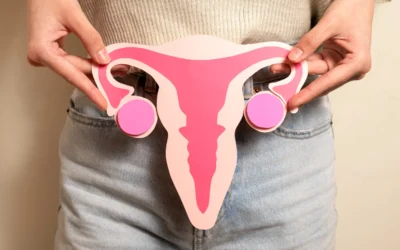Hormones are the body’s chemical messengers, orchestrating everything from mood and metabolism to reproductive cycles and sleep patterns. For women, hormonal balance is especially vital—and delicate. Fluctuations in estrogen, progesterone, cortisol, and insulin can lead to a wide range of physical and emotional symptoms, including fatigue, weight gain, mood swings, acne, and fertility challenges. While diet, exercise, and stress management are foundational pillars of hormonal health, they sometimes fall short, especially when nutritional gaps or lifestyle stressors persist.
That’s where supplements come in.
With growing research highlighting the role of specific nutrients in hormonal regulation, many women are turning to targeted supplementation as part of a comprehensive wellness plan. This guide explores the best supplements for women’s hormone health—what they do, who might benefit, and how to use them wisely.
In This Article
Understanding Hormonal Health in Women
Hormones are secreted by endocrine glands and affect nearly every organ and tissue in the body. The primary hormones influencing women’s health include estrogen, progesterone, testosterone, cortisol, thyroid hormones, and insulin. Imbalances—whether from natural transitions like perimenopause, chronic stress, or underlying conditions like polycystic ovary syndrome (PCOS)—can result in symptoms that disrupt daily life.
Hormone Health imbalances can be caused by several factors:
- Nutrient deficiencies
- Chronic stress and cortisol dysregulation
- Poor gut and liver health
- Inflammatory diets
- Exposure to endocrine-disrupting chemicals
Supplements can’t replace a healthy lifestyle, but they can help address root causes of imbalance and support the body’s natural regulation mechanisms, particularly when deficiencies are present.
Vitamin D: The Hormonal Backbone
Often called the “sunshine vitamin,” vitamin D functions more like a hormone in the body. It plays a pivotal role in calcium absorption, immune function, and, critically, hormonal balance. It influences insulin sensitivity, sex hormone production, and even mood-regulating neurotransmitters.
Low levels of vitamin D are linked to conditions such as PMS, infertility, PCOS, and perimenopausal mood disorders. According to research published in the Journal of Clinical Endocrinology and Metabolism, women with PCOS frequently have lower vitamin D levels, which can exacerbate symptoms like irregular periods and insulin resistance (Holick, 2011).
Supplementation is especially important for women who:
- Live in northern climates
- Have darker skin tones
- Spend most time indoors
- Are pregnant or perimenopausal
| Supplement | Recommended Dosage | Notable Benefits |
|---|---|---|
| Vitamin D3 | 2,000–5,000 IU/day | Regulates estrogen, supports mood, boosts immunity |
Note: Vitamin D is fat-soluble and best taken with a meal containing fat. A blood test can determine optimal dosage.
B Vitamins: The Metabolic Managers
The B vitamin family—particularly B6, B9 (folate), and B12—plays essential roles in hormonal regulation, energy metabolism, and detoxification. They are heavily involved in methylation, a biochemical process that affects everything from DNA repair to estrogen metabolism.
Vitamin B6
Vitamin B6 helps regulate mood and is commonly used to ease PMS symptoms like irritability and bloating. It also supports progesterone production, which is key in balancing estrogen.
Folate (B9) and B12
Both folate and B12 are crucial for reproductive health and fertility. They also support the liver in breaking down excess estrogen, reducing the risk of estrogen dominance—a common issue among women in their 30s and 40s.
| B Vitamin | Role in Hormonal Health | Common Sources | Supplement Form |
|---|---|---|---|
| B6 | Progesterone synthesis, PMS relief | Chickpeas, bananas | Pyridoxal-5-phosphate |
| B9 (Folate) | DNA synthesis, fertility support | Leafy greens, lentils | Methylfolate |
| B12 | Methylation, energy, estrogen detox | Animal products | Methylcobalamin |
Women following vegetarian or vegan diets are especially prone to B12 deficiency and may benefit from regular supplementation.
Magnesium: The Stress and Sleep Stabilizer
Magnesium is involved in over 300 enzymatic reactions, many of which directly affect hormone production and balance. It’s known to support adrenal function, calm the nervous system, and aid in estrogen metabolism. It also helps mitigate PMS symptoms such as cramps, headaches, and insomnia.
Chronic stress depletes magnesium, making it especially important for women with high cortisol levels or adrenal fatigue.
| Form | Benefit | Best For |
|---|---|---|
| Magnesium glycinate | Gentle on the stomach, promotes relaxation | Anxiety, insomnia |
| Magnesium citrate | Supports digestion | Constipation, sluggish bowels |
| Magnesium threonate | Crosses the blood-brain barrier | Cognitive support |
Typical dosage ranges from 200–400 mg per day, preferably taken in the evening.
Omega-3 Fatty Acids: Nature’s Anti-Inflammatory
Omega-3 fatty acids, particularly EPA and DHA, reduce inflammation—a key driver of many hormonal disorders. They also support brain function, regulate mood, and help manage symptoms of PMS, endometriosis, and perimenopause.
Studies show that women supplementing with omega-3s report fewer menstrual cramps, more stable moods, and improved cognitive clarity (Gómez Candela et al., 2011).
| Source | EPA + DHA per 1,000 mg | Notes |
|---|---|---|
| Fish oil | 500–750 mg | Standard supplement, widely available |
| Algal oil | 400–500 mg | Vegan alternative |
| Krill oil | 250–500 mg | High bioavailability, contains antioxidants |
Omega-3s should be consumed consistently for several weeks to notice benefits. Look for brands tested for heavy metals and oxidation.
Inositol: A Game-Changer for PCOS
Inositol, particularly in the form of myo-inositol and D-chiro-inositol, is a vitamin-like compound that shows remarkable promise in treating PCOS—a condition that affects up to 10% of women of reproductive age.
It works by improving insulin sensitivity, reducing androgen levels, and promoting ovulation. Several clinical trials have shown that inositol supplementation can restore regular menstrual cycles and improve fertility in women with PCOS (Nestler et al., 1999; Gerli et al., 2003).
| Form | Ratio | Dosage |
|---|---|---|
| Myo-inositol + D-chiro-inositol | 40:1 (most researched) | 2–4 grams/day |
Women with insulin resistance, acne, or irregular cycles may benefit most.
N-Acetyl-Cysteine (NAC): The Detox Ally
NAC is a precursor to glutathione, one of the body’s most powerful antioxidants. It supports liver detoxification—key to clearing excess hormones—and reduces systemic inflammation.
In women with PCOS, NAC has been shown to improve insulin sensitivity and ovulation rates. It also supports respiratory and immune health, making it a multipurpose supplement with widespread benefits.
A standard dosage is 600–1,200 mg daily, taken on an empty stomach.
Herbal Allies: Black Cohosh and Chasteberry
Botanical supplements have been used for centuries to ease hormonal transitions and regulate menstrual health. Two of the most well-researched options are black cohosh and chasteberry (Vitex agnus-castus).
Black Cohosh
Commonly used to relieve hot flashes and night sweats in menopausal women, black cohosh acts as a phytoestrogen, gently mimicking estrogen in the body.
Chasteberry
Chasteberry helps regulate the menstrual cycle and is especially useful for luteal phase defects and PMS. It supports progesterone production and is often recommended for women discontinuing birth control or experiencing cycle irregularities.
| Herb | Best For | Dosage |
|---|---|---|
| Black Cohosh | Menopausal symptoms | 20–40 mg/day |
| Chasteberry | PMS, irregular periods | 400–1,000 mg/day |
Botanicals should be cycled periodically and used under professional guidance, especially if hormone therapy or medications are involved.

Strategic Use of Supplements: Tips and Precautions
While supplements offer powerful hormone health benefits, their use should be intentional and informed. Here’s how to get the most from your regimen:
1. Test Before You Supplement
Get blood work done to assess vitamin D, B12, and hormone levels. Functional testing like DUTCH or hormone panels can provide deeper insight.
2. Start with the Basics
Address foundational nutrients first—vitamin D, B vitamins, magnesium, and omega-3s—before layering on more targeted supplements.
3. Quality Matters
Choose third-party tested supplements from reputable brands. Avoid fillers, dyes, or poorly absorbed forms.
4. Track Your Symptoms
Keep a journal to observe changes in mood, energy, cycle regularity, and sleep. Adjust doses or formulas as needed.
5. Consult Your Provider
Especially if you’re pregnant, breastfeeding, taking medications, or managing a chronic condition.
Conclusion
Hormone health is a complex, dynamic system influenced by lifestyle, nutrition, stress, and genetics. While no supplement offers a magic fix, strategically chosen nutrients can offer profound support—especially for women navigating PMS, PCOS, perimenopause, and other hormone-related challenges.
Vitamins D and B, magnesium, omega-3 fatty acids, inositol, NAC, and select herbal remedies form the cornerstone of a hormone-supportive supplement plan. When used thoughtfully, these supplements can help restore balance, ease symptoms, and promote long-term vitality.
Before starting any new supplement, consult with a qualified healthcare provider to ensure it’s appropriate for your unique needs. When combined with mindful eating, movement, and stress management, these tools can help you take charge of your hormone health—one capsule at a time.
References
- Holick, M. F. (2011). Vitamin D: evolutionary, physiological and health perspectives. Current Drug Targets, 12(1), 4–18. https://doi.org/10.2174/138945011793591635
- Gómez Candela, C., Bermejo López, L. M., & Loria Kohen, V. (2011). Importance of omega-3 fatty acids in human nutrition. Nutrición Hospitalaria, 26(4), 18–26. https://scielo.isciii.es/scielo.php?pid=S0212-16112011000400001&script=sci_arttext
- Nestler, J. E., Jakubowicz, D. J., Reamer, P., Gunn, R. D., & Allan, G. (1999). Ovulatory and metabolic effects of D-chiro-inositol in the polycystic ovary syndrome. The New England Journal of Medicine, 340(17), 1314–1320. https://doi.org/10.1056/NEJM199904293401703
- Gerli, S., Papaleo, E., Ferrari, A., & Di Renzo, G. C. (2003). Randomized, double blind placebo-controlled trial: effects of myo-inositol on ovarian function and metabolic factors in women with PCOS. European Review for Medical and Pharmacological Sciences, 7(6), 151–159.
- Root Functional Medicine. (2025). Best Vitamins for Hormone Balance. https://rootfunctionalmedicine.com/best-vitamins-hormone-balance
- Rupa Health. (2025). Supplements that Balance Hormones. https://www.rupahealth.com/post/supplements-to-balance-hormones
- Plate and Canvas. (2023). Hormone Balance Supplements: A Dietitian’s Top Ten Picks. https://www.plateandcanvas.com/hormone-balance-supplements-a-dietitian-s-top-ten-picks
- National Center for Biotechnology Information. (2005). Botanical and Dietary Supplements for Menopausal Symptoms. https://www.ncbi.nlm.nih.gov/pmc/articles/PMC1764641/










0 Comments